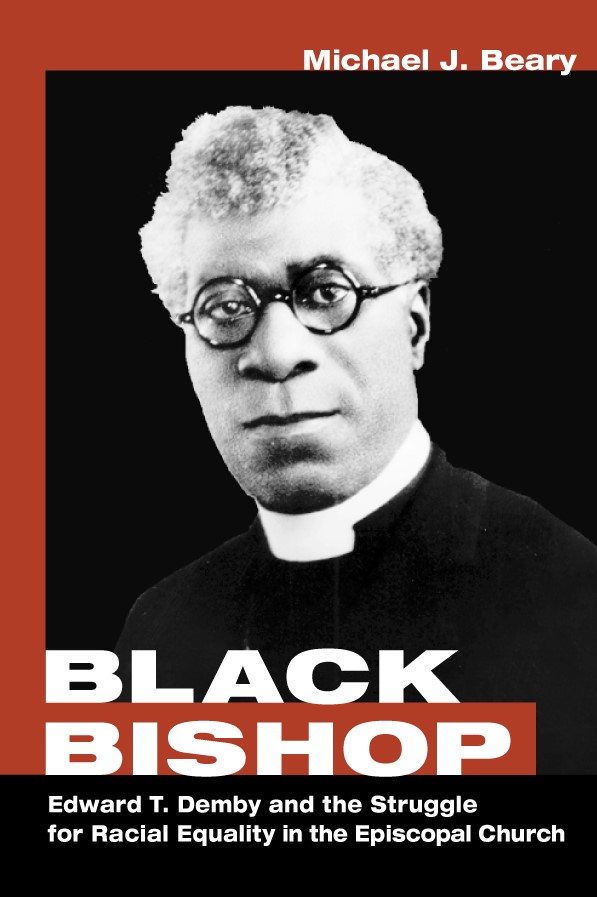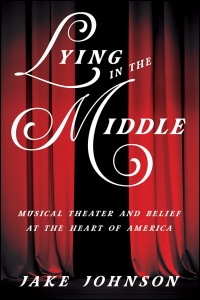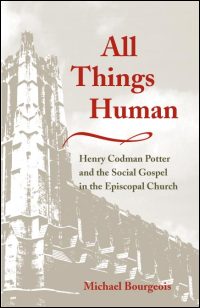
Black Bishop
About the Book
In 1918, the Right Reverend Edward T. Demby took up the reins as Suffragan (assistant) Bishop for Colored Work in Arkansas and the Province of the Southwest, an area encompassing Arkansas, Texas, Kansas, Oklahoma, Missouri, and New Mexico. Set within the context of a series of experiments in Black leadership conducted by the Episcopal Diocese of Arkansas in the early decades of the twentieth century, Demby's tenure in a segregated ministry illuminates the larger American experience of segregation disguised as a social good.Intent on demonstrating the industry and self-reliance of Black Episcopalians to the church at large, Demby set about securing Black priests for the diocese, baptizing and confirming communicants, and building schools and other institutions of community service. A gifted leader and a committed Episcopalian, Demby recognized that Black service institutions, such as schools, hospitals, and orphanages, would be the means to draw African Americans back to the Episcopal Church, which they had abandoned in droves after emancipation as the church of their former masters.
For more than twenty years, hamstrung by white apathy, lack of funds, jurisdictional ambiguity, and the Great Depression, Demby doggedly tried to establish the credibility of a ministry that was as ill conceived as it was well intended. Michael J. Beary skillfully narrates the shifting alliances within the Episcopal Church and shows how race was but one aspect of a more elemental struggle for power. He demonstrates how Demby's steadiness of purpose and non-confrontational manner gathered allies on both sides of the color line and how, ultimately, his judgment and the weight of his experience carried the church past its segregationist experiment.
Reviews
"A minutely and scrupulously detailed biography and analysis of the first Black man appointed to be a bishop in the Episcopal Church."--Paul Harvery, Religious Studies Review"Beary's conclusions to this deeply researched and well-written study are important and solid. His work will be useful to many, particularly students of southern religious history and race relations."--Terry D. Goddard, Arkansas Historical Quarterly
"This meticulously researched, sensitively written, and readable book is a church history with a difference. It is a biography of Edward T. Demby, the first Black bishop in the Episcopal Church, and a history of race relations within that church."--William Norton, Journal of the West
"A riveting and valuable analysis of the long and often dehumanizing struggles of the Reverend Edward T. Demby as he fought on two equally difficult fronts: to become the first duly elected Black bishop in the Episcopal Church and to expose and overcome the racism that marked both Episcopalianism and the secular society of his age. . . . Beary's historical analysis of racism in the Episcopal Church shines such a powerful floodlight on this truth that racist confessors should no longer be able to hide behind ecclesia's walls."--Paul R. Griffin, Anglican and Episcopal History
"This relentlessly honest, scrupulously researched and well-written biography rises above praise and blame and allows the life of a remarkable Christian to speak for itself. In the process, he also illuminates the moral geography of an era." -- Robert Neralich, The Arkansas Democrat-Gazette
"Beary skillfully narrates the shifting alliances within the Episcopal Church and shows how race was but one aspect of a more elemental struggle for power. He demonstrates how Demby's steadiness of purpose and nonconfrontational manner gathered allies on both sides of the color line and how, ultimately, his judgment and the weight of his experience carried the church past its segregationist experiment." -- African Sun Times
"A fine study, not just of the life of an individual, but of an era in the life of the Church. Bishop Demby reminds us that even in the midst of the painful and the unjust, the work of the Spirit cannot be entirely extinguished." -- Caroline T. Marshall, The Historiographer









